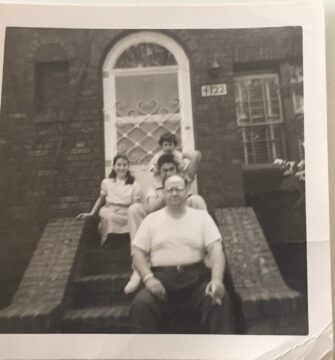
by Barbara Fischkin
People who have never been to sleepaway camp, don’t get it. They tease me when I speak about memories that are decades old, as if I am recalling a past life that never happened. They find it strange that I view my many years at camp as not merely summer vacations but as forces that helped to make me who I am. These camp memories visit me more deeply when the winter sky sets early, fooling me into believing that 4:30 pm is really past midnight. If I am roaming, I wonder if it is already time to go home. I linger. Yes, my summer camp taught me to roam physically—and in my imagination. It was free and free-range.
I’ll tarry briefly where many good tales begin. In the middle: My teenage years, as a camp clerk and then as babysitter for a camp director and finally, as a counselor. These summer jobs were woefully underpaid. But the fringe benefits were great: Opportunities to break rules that were often not enforced, anyway.
I smoked my first joint, out in the open, sitting with friends on a large rock by the lake, right after a late summer sunset. If caught by a camp director, we would have been fired. I don’t think they wanted to catch us. They were somewhere else, smoking their own joints. Romance, along with pot, seemed to be part of the plan for young employees, particularly in regard to the kitchen boys over whom we swooned. My camp, socialist at its core and run by lefty social workers, did not believe in waiters. To check out a kitchen boy, campers and staff had to go to one of several pantries to pick up or deliver food, plates and utensils. A chore made joyful.
In regard to specific romance, I remember the night I spent with a slightly older male counselor, sleeping with him in his tent—and not doing much more than sleeping. (Maybe it was the pot). Before dawn I shoved him awake and said: “I have to go, I will get into trouble.” He laughed a sleepy laugh, perhaps a stoner laugh and said: “Barbara, this is Wel-Met. Nobody gets in trouble for sleeping with someone.” Read more »



